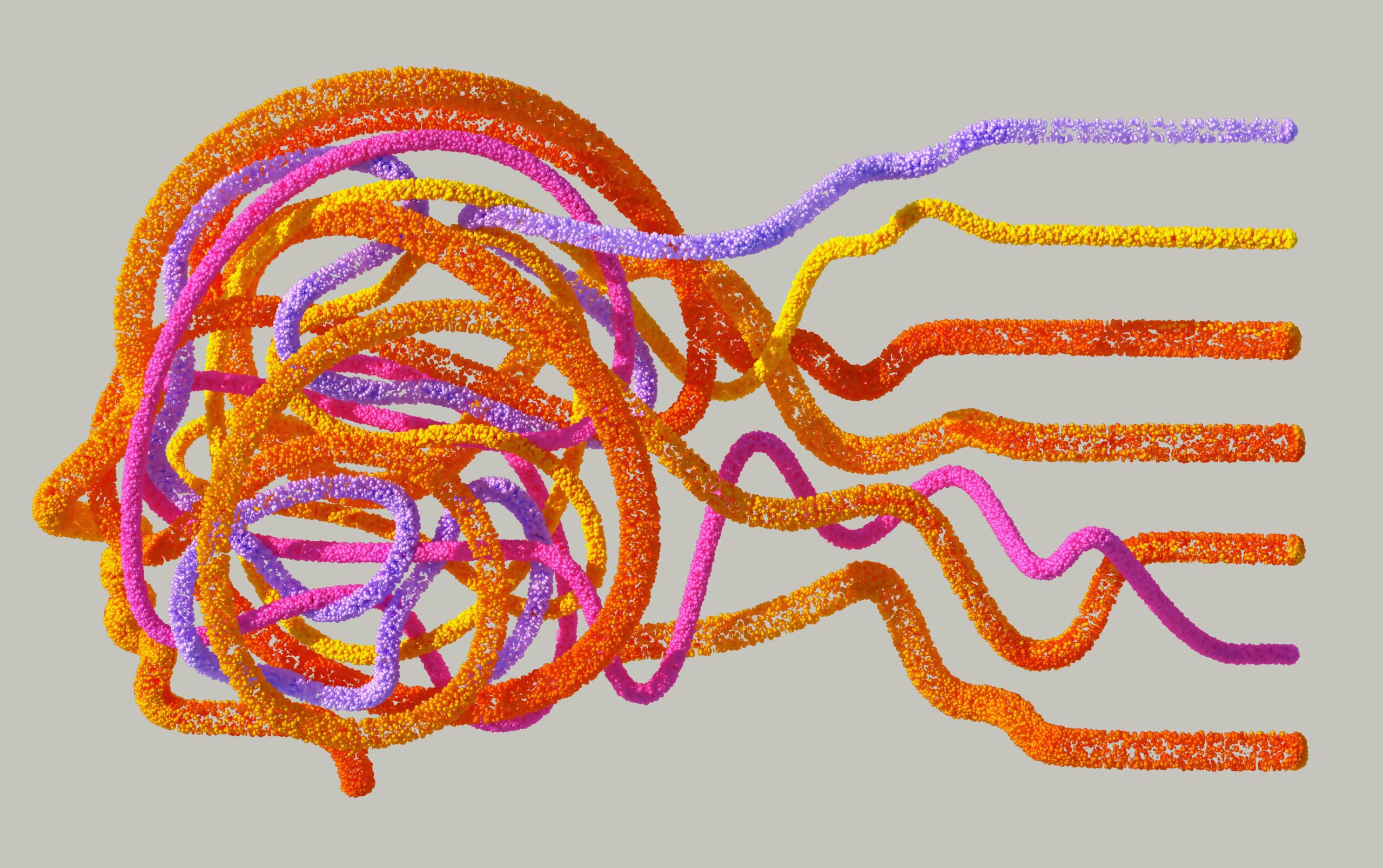Our brains are incredible machines, constantly processing information, making decisions, and solving problems. Yet, we often push them to their limits without understanding how cognitive load affects our performance and well-being.
Understanding how our minds handle information is crucial for anyone seeking to optimize their mental performance, whether you’re a student, professional, or simply someone interested in maximizing your cognitive potential. The science of cognitive load offers fascinating insights into how we can work smarter, not harder, and achieve peak mental efficiency in our daily lives.
🧠 What Exactly Is Cognitive Load?
Cognitive load refers to the total amount of mental effort being used in working memory at any given time. First introduced by psychologist John Sweller in the 1980s, this concept has revolutionized our understanding of how people learn, process information, and perform complex tasks.
Your working memory functions like a mental workspace with limited capacity. When you’re juggling multiple tasks, learning new concepts, or solving problems, you’re consuming this precious cognitive resource. Think of it as RAM in a computer – when too many programs run simultaneously, the system slows down or crashes.
The Three Types of Cognitive Load
Cognitive load theory identifies three distinct types that work together to shape our mental efficiency:
Intrinsic Load represents the inherent difficulty of the material or task itself. Learning basic addition carries low intrinsic load, while mastering calculus demands significantly more mental resources. This type of load is largely fixed based on the complexity of what you’re trying to accomplish.
Extraneous Load comes from how information is presented to you. Poor design, distractions, or unnecessarily complicated explanations create this type of load. Unlike intrinsic load, extraneous load can and should be minimized through better organization and presentation.
Germane Load is the productive mental effort dedicated to processing information and building long-term understanding. This is the good kind of cognitive load – the mental work that leads to genuine learning and skill development.
📊 Measuring Your Mental Workload: Science-Backed Methods
Understanding cognitive load is one thing, but measuring it accurately opens doors to practical optimization. Researchers and performance experts use various sophisticated techniques to quantify mental workload.
Physiological Measurement Techniques
Your body provides honest signals about your cognitive state, even when you’re not consciously aware of mental strain. Modern technology allows us to track these biological markers with increasing precision.
Eye tracking technology reveals cognitive load through pupil dilation and blink rates. When facing challenging tasks, your pupils naturally dilate, and you blink less frequently. These involuntary responses serve as reliable indicators of mental effort.
Heart rate variability (HRV) monitoring offers another window into cognitive strain. Higher cognitive demands typically reduce HRV, as your autonomic nervous system responds to mental stress similarly to physical stress.
Brain imaging techniques like functional MRI (fMRI) and electroencephalography (EEG) provide direct measurements of neural activity. While primarily research tools, consumer-grade EEG headbands are making brain activity monitoring increasingly accessible for personal optimization.
Behavioral and Performance Indicators
You don’t always need sophisticated equipment to gauge cognitive load. Observable behaviors and performance metrics offer practical assessment methods for everyday use.
Task completion time naturally increases under higher cognitive load. When your mental resources are stretched thin, everything takes longer – a clear signal that you’re approaching capacity limits.
Error rates spike when cognitive load exceeds optimal levels. Whether it’s typos in an email, mistakes in calculations, or poor decisions, increased errors indicate your working memory is overwhelmed.
Dual-task performance reveals cognitive capacity limits. Your ability to handle secondary tasks while maintaining primary task performance directly reflects available mental resources.
Self-Reporting and Subjective Measures
Sometimes the simplest approach works best. Validated questionnaires like the NASA Task Load Index (NASA-TLX) allow individuals to rate their perceived mental demand, effort, and performance across multiple dimensions.
Regular self-assessment through journaling or rating scales helps you recognize patterns in your cognitive load throughout different times of day, tasks, and environmental conditions.
⚡ The Hidden Costs of Cognitive Overload
When cognitive load consistently exceeds your capacity, the consequences extend far beyond temporary fatigue. Understanding these impacts motivates better mental resource management.
Decision fatigue emerges as one of the most insidious effects of cognitive overload. Each decision depletes your mental energy reserves, leading to progressively poorer choices as the day progresses. This explains why successful leaders often simplify routine decisions like clothing choices to preserve cognitive resources for critical matters.
Memory consolidation suffers under excessive cognitive load. Your brain requires adequate resources not just for initial learning but also for transferring information from short-term to long-term memory. Overload interferes with this crucial process, making retention difficult despite hours of study or practice.
Chronic cognitive overload contributes to burnout and mental exhaustion. Unlike physical fatigue that resolves with rest, mental burnout involves deeper psychological and emotional depletion requiring extended recovery periods.
🎯 Strategic Approaches to Optimize Cognitive Load
The goal isn’t eliminating cognitive load but optimizing it – reducing unnecessary load while maximizing productive mental effort. These evidence-based strategies help you work within your cognitive capacity while expanding it over time.
Chunking: The Power of Information Packaging
Your working memory can hold approximately seven items simultaneously, but chunking allows you to dramatically expand this capacity. By grouping related information into meaningful units, you reduce the number of discrete items your brain must track.
Phone numbers demonstrate this principle perfectly. Rather than remembering ten individual digits, you chunk them into three groups: area code, prefix, and line number. This simple organization makes an impossible task manageable.
Apply chunking to complex projects by breaking them into logical phases. Learning new software becomes less overwhelming when you master one feature category at a time rather than attempting to absorb everything simultaneously.
Progressive Disclosure and Scaffolding
Information should be revealed gradually, matching the expansion of your understanding. Progressive disclosure prevents cognitive overload by presenting only what’s immediately necessary, allowing you to build mental frameworks before adding complexity.
Effective learning systems implement scaffolding – temporary support structures that guide you through complex material. As competence develops, scaffolds gradually disappear, fostering independence without overwhelming your cognitive resources.
Environmental Design for Reduced Extraneous Load
Your physical and digital environments significantly impact cognitive load. Strategic design choices minimize unnecessary mental strain, preserving resources for meaningful work.
- Eliminate visual clutter from your workspace to reduce distraction-related cognitive load
- Use consistent organizational systems across all areas to minimize decision-making overhead
- Implement single-tasking protocols for complex work requiring deep focus
- Schedule cognitively demanding tasks during your peak mental performance hours
- Create distinct environments for different work types to leverage context-dependent processing
The Strategic Use of Automation and Externalization
Your brain shouldn’t waste cognitive resources on tasks that technology or systems can handle more efficiently. Automation and externalization free mental capacity for higher-level thinking.
Develop comprehensive note-taking systems that serve as external memory storage. When information lives in reliable external systems, your working memory can focus on analysis and synthesis rather than simple retention.
Automate routine decisions through established protocols and habits. Morning routines, meal planning, and standard operating procedures for common tasks all reduce daily cognitive load substantially.
🚀 Building Greater Cognitive Capacity Over Time
While working within current cognitive limits is crucial, you can gradually expand your mental capacity through deliberate practice and lifestyle optimization.
Cognitive Training and Mental Exercise
Like physical muscles, your cognitive capabilities respond to systematic training. However, not all brain training delivers meaningful results. Evidence supports specific approaches for building genuine cognitive capacity.
Working memory training through progressively challenging tasks has shown promise in research settings. Activities that push your current capacity limits while providing appropriate support foster gradual expansion of mental resources.
Learning complex skills, especially those involving multiple cognitive domains simultaneously, builds cognitive reserve. Musical training, learning languages, and mastering strategic games all strengthen neural networks supporting working memory and executive function.
Physical Health as Cognitive Foundation
Your brain’s performance depends entirely on physiological support. Optimization requires addressing the physical foundations of cognitive function.
Cardiovascular exercise increases blood flow to the brain, supporting neuroplasticity and cognitive performance. Regular aerobic activity doesn’t just maintain current function – it actively enhances cognitive capacity over time.
Sleep quality directly determines daily cognitive capacity. During sleep, your brain consolidates memories, clears metabolic waste, and resets neural networks for optimal performance. Chronic sleep deprivation permanently reduces effective cognitive capacity.
Nutrition influences cognitive function more profoundly than many realize. Stable blood glucose levels, adequate omega-3 fatty acids, and proper hydration all significantly impact working memory performance and mental clarity.
Mindfulness and Metacognitive Awareness
Developing awareness of your own cognitive processes enables real-time optimization. Mindfulness practices enhance this metacognitive capacity, helping you recognize when cognitive load approaches problematic levels.
Regular meditation strengthens attention control and working memory capacity. Even brief daily practice produces measurable improvements in cognitive performance metrics over time.
Metacognitive monitoring – paying attention to how you think – allows you to adjust strategies based on current cognitive state. This awareness helps you recognize when to push forward and when to rest or switch tasks.
💡 Applying Cognitive Load Principles in Real-World Contexts
Theory becomes valuable only through practical application. Understanding how cognitive load operates in specific domains enables targeted optimization strategies.
Learning and Education
Educational settings benefit enormously from cognitive load principles. Students absorb material more effectively when instruction minimizes extraneous load and appropriately manages intrinsic complexity.
Worked examples reduce cognitive load during skill acquisition by showing complete solutions before expecting independent problem-solving. This approach builds mental schemas more efficiently than pure discovery learning for complex subjects.
Interleaved practice – mixing different types of problems rather than blocking by type – optimizes germane load. While initially more challenging, this approach builds stronger, more flexible understanding.
Professional Performance and Productivity
Workplace cognitive load management directly impacts productivity, decision quality, and innovation capacity. Organizations increasingly recognize mental efficiency as a competitive advantage.
Time blocking protects cognitive resources by eliminating constant task-switching overhead. Dedicated periods for specific work types allow you to enter flow states impossible with fragmented attention.
Meeting protocols that distribute cognitive load appropriately improve outcomes. Pre-distributed agendas, clear objectives, and structured formats reduce extraneous load, allowing participants to focus mental resources on substantive contributions.
Digital Life and Information Management
Modern digital environments create unprecedented cognitive demands. Strategic approaches to technology use prevent information overload while preserving digital benefits.
Notification management dramatically reduces extraneous cognitive load. Each interruption doesn’t just cost the moment of distraction – it creates switching costs and residual attention debt affecting subsequent focus.
Information diet curation applies cognitive load principles to content consumption. Selective, intentional engagement with high-quality sources produces better learning outcomes than constant exposure to shallow information streams.
🔬 The Future of Cognitive Load Research and Application
Emerging technologies and research directions promise even more sophisticated approaches to measuring and optimizing cognitive performance.
Artificial intelligence systems increasingly adapt to individual cognitive states in real-time, adjusting information presentation and task demands based on detected load levels. These adaptive systems could revolutionize personalized learning and productivity tools.
Neurofeedback technologies allow individuals to observe their brain activity directly and learn to modulate their cognitive states. As these tools become more accessible and affordable, personal cognitive optimization may become as common as physical fitness tracking.
Brain-computer interfaces, while still emerging, could eventually bypass working memory limitations entirely for certain tasks. However, understanding cognitive load principles remains essential even as technology expands our capabilities.
🎓 Practical Implementation: Your Cognitive Optimization Plan
Knowledge transforms into results only through consistent application. Building a personalized cognitive optimization system requires systematic implementation of evidence-based principles.
Begin with baseline assessment. Track your cognitive performance, energy levels, and perceived mental strain across different times and contexts for at least two weeks. This data reveals your natural rhythms and current capacity limits.
Implement one optimization strategy at a time, measuring its impact before adding another. This methodical approach clarifies what actually works for your unique situation rather than overwhelming you with simultaneous changes.
Create accountability systems that support consistent practice. Whether through tracking apps, accountability partners, or regular self-review sessions, external structure helps maintain cognitive optimization habits until they become automatic.
Remember that cognitive optimization is a marathon, not a sprint. Small, sustainable improvements compound over time into transformative enhancements in mental efficiency and performance capacity.

🌟 Embracing Your Cognitive Potential
Understanding cognitive load science empowers you to work with your brain’s natural architecture rather than against it. By measuring mental workload, minimizing unnecessary strain, and strategically building capacity, you unlock performance levels previously beyond reach.
The human brain represents the most sophisticated information processing system known to exist. Respecting its limitations while leveraging its remarkable plasticity allows you to achieve sustained peak performance across all life domains.
Your cognitive resources are precious and finite on any given day, but your capacity to optimize their use is nearly limitless. Start small, remain consistent, and watch as improved mental efficiency transforms not just your productivity but your entire approach to learning, working, and living.
The journey toward cognitive optimization never truly ends – there’s always another level of efficiency to discover, another capacity to expand. Embrace this ongoing process, and you’ll find that your greatest mental performances still lie ahead, waiting to be unlocked through the strategic application of cognitive load science.
Toni Santos is a cognitive storyteller and cultural researcher dedicated to exploring how memory, ritual, and neural imagination shape human experience. Through the lens of neuroscience and symbolic history, Toni investigates how thought patterns, ancestral practices, and sensory knowledge reveal the mind’s creative evolution. Fascinated by the parallels between ancient rituals and modern neural science, Toni’s work bridges data and myth, exploring how the human brain encodes meaning, emotion, and transformation. His approach connects cognitive research with philosophy, anthropology, and narrative art. Combining neuroaesthetics, ethical reflection, and cultural storytelling, he studies how creativity and cognition intertwine — and how science and spirituality often meet within the same human impulse to understand and transcend. His work is a tribute to: The intricate relationship between consciousness and culture The dialogue between ancient wisdom and neural science The enduring pursuit of meaning within the human mind Whether you are drawn to neuroscience, philosophy, or the poetic architecture of thought, Toni invites you to explore the landscapes of the mind — where knowledge, memory, and imagination converge.




